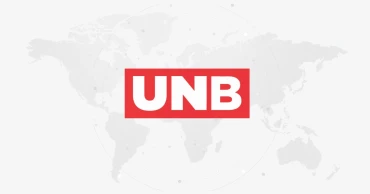price hikes
DCCI raises alarms over VAT and gas price hikes
The Dhaka Chamber of Commerce & Industry (DCCI) has raised serious concerns over proposed hikes in industrial gas prices and VAT, warning they could disrupt business, deter investment and undermine export competitiveness.
Petrobangla recently submitted a proposal to the Bangladesh Energy Regulatory Commission (BERC) to more than double the per-unit price of gas for industrial and captive consumers—from Tk 30 and Tk 31.50 to Tk 75.72.
The move aims to alleviate the government’s subsidy burden on gas production costs. Simultaneously, the National Board of Revenue (NBR) has raised income tax for motorcycle, refrigerator, air-conditioner, and compressor manufacturers from 10% to 20%, reversing a prior commitment to maintain reduced rates until 2032.
In a statement, the DCCI highlighted that such measures, if implemented, would significantly increase production costs, placing inflationary pressure on both industries and consumers.
This, the DCCI cautioned, could deter local and foreign investment, jeopardise Bangladesh’s competitive standing in the global market, and hinder the establishment of new industries.
“The proposal to increase gas prices without ensuring uninterrupted supply presents a formidable challenge for businesses,” the DCCI said. “The cost of doing business will skyrocket, impacting both domestic and export-oriented industries. This would not only reduce profitability but also erode Bangladesh’s competitiveness in international markets.”
Read: Private sector facing various challenges: DCCI
The chamber said that the negative implications of inconsistent policies. The abrupt withdrawal of promised tax incentives, it argued, could tarnish Bangladesh’s reputation as an investment-friendly destination.
“Such a reversal sends a detrimental message to both local and foreign investors, undermining confidence and casting doubt on policy reliability,” the statement added.
A Call for Collaboration
The DCCI urged the government, BERC, and Petrobangla to reconsider the proposed gas price hike. It also called for a review of the VAT and tax rate increases, suggesting that these measures could exacerbate inflationary pressures and operational costs for businesses at a time of global economic uncertainty.
“To foster sustainable economic growth, it is imperative to maintain a stable, business-friendly environment,” the DCCI noted. “This requires long-term policy commitments, tax benefits, and active collaboration between the government, private sector, and other stakeholders.”
Broader Implications
The proposed tax hike on manufacturing industries such as motorcycles, refrigerators, and air-conditioners comes at a time when businesses are already grappling with an unstable economic climate.
The DCCI warned that these measures could dampen local industrial activity, reduce foreign investment, and ultimately curtail economic recovery.
Read more: Businesses agree with central bank's steps against bank robbers: DCCI
With Bangladesh striving to recover amid global economic challenges, the DCCI reiterated the need for “cost-effective policies that ensure continuity and stability.”
It argued that policy reversals and steep cost increases could undermine the country’s efforts to attract investors and sustain economic momentum.
1 year ago
Price hikes: Seven businesses fined in market monitoring drive
Two teams of the Ministry of Commerce have fined seven businesses Tk 29,000 while monitoring the market to keep the prices of essential commodities stable.
The monitoring activities were conducted in Dhaka’s New Market kitchen market and Gulshan kitchen market on Sunday afternoon.
In New Market, a team led by Senior Assistant Secretary Md. Mehedi Hasan of the Ministry of Commerce inspected the prices of essential items such as rice, lentils, eggs, and chicken. The team reviewed price lists and receipts of transactions.
A poultry seller was fined TK 2,000 for failing to properly display the price list and for improper record-keeping, while other businesses were issued warnings.
At the Gulshan kitchen market, six businesses were fined a total of TK 27,000 for various irregularities. The inspection team there was led by Deputy Secretary Mansurin Khan Chowdhury.
Officials from various departments under the Ministry of Commerce were present during the inspections.
1 year ago
Fuel, natural gas price hikes to have domino effect on economy: DCCI
The recent fuel price hike and increase in gas price in June will have a domino effect on the entire economy, the Dhaka Chamber of Commerce and Industry (DCCI) said Sunday.
The hikes will have an immediate negative impact on transportation, essential commodities and electricity, it added.
The cumulative impact of the price hike of fuels will cause inflationary pressure on the economy by raising the operating cost of all energy-dependent businesses and industries.
The government Saturday increased the prices of all refined fuel oil products by 42.5 to 52 percent despite the gradual fall in global energy prices.
Read: Area-based industries to remain closed a day in a week to save gas, electricity: Nasrul Hamid
Diesel is the most-consumed fuel in Bangladesh, accounting for 73 percent of the country's total fuel consumption. More than 90 percent of the transportation sector is dependent on diesel.
Also, vehicles that are powered by octane and petrol will have to bear an increased cost, the DCCI said. "This will also push up the domestic freight costs, leading to higher prices of essentials across the country."
Another major impact will be on the production cost of agricultural products as diesel is widely used for irrigation purposes.
Recurring fuel and fertiliser price hikes will directly impact the production cost of agricultural products and gradually affect food security, the DCCI said.
Read: Westerners have put us into the danger: PM’s Energy Advisor
Manufacturing industries are already suffering due to electricity rationing as diesel and liquefied natural gas prices went high globally.
So, the DCCI suggested framing out a long-term strategy, continuing onshore and offshore gas exploration, pursuing energy mix and cost and energy efficient electricity generation.
It also recommended reducing the fuel price as soon as it comes down in the international market considering its negative impact on the economy.
3 years ago





